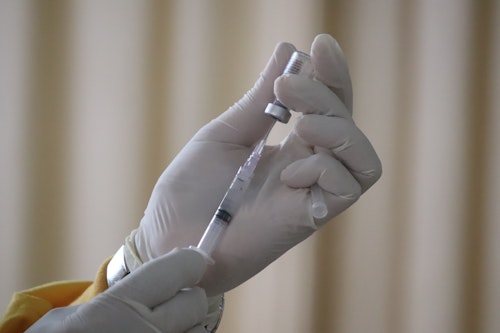Will the coronavirus vaccine offer lifetime immunity?
Written By
Joy EmehHuman Anatomist | Health Editor

One of the major coronavirus updates is the development of effective coronavirus vaccines first by Pfizer-BioNTech, closely followed by Moderna.
With the roll-out of COVID-19 vaccines by pharmaceutical and biotech companies like Moderna and Pfizer-BioNTech, it is relieving to know that now, we can build a biological barrier against the novel coronavirus.
However, there are still lots of questions asked about the COVID-19 vaccine. There are still lots of things to know about the coronavirus vaccine. One of the common questions regarding the COVID-19 vaccine is, “will the coronavirus vaccine offer a lifetime immunity?”.
People would want to know that if they take the coronavirus vaccine jabs, would they be protected from the deadly coronavirus disease for life? For how long will the coronavirus vaccine offer its protection?
How long do vaccines offer immunity?
Photo by CDC on Unsplash
How long a vaccine would offer immunity would depend on the vaccine itself. When developing vaccines, the major goal of scientists is to have them offer as much long immunity as possible.
However, the duration of vaccine immunity would always vary from one vaccine to another. Typically, vaccine immunity can last anywhere from a couple of months to a lifetime.
For example, some vaccines like the measles vaccine, last a lifetime, while others last for a shorter duration. While a tetanus vaccine lasts for 10 years, the vaccine for norovirus that causes stomach flu lasts for only about half a year.
For the vaccines that last for a shorter duration, they would require regular shots to keep protected. So, will the coronavirus vaccine offer a lifetime immunity? We will answer that later; read on.
How do vaccines work?
For long we have been talking about how an effective vaccine would help end the coronavirus pandemic. But how do vaccines work? What exactly do they do?
Vaccines contain an inactive or weakened part of an organism (COVID-19 virus, for instance) called an antigen. When administered, the vaccine triggers the body to release antibodies against the antigen.
What is an antibody?
An antibody is a protein which the immune system produces when a foreign substance (antigen) invades the body. Antibodies recognize foreign antigens and attack them in order to eliminate them from the body.
The immunes system and the antibodies produced would learn and remember the antigens so that in the future, if the body gets invaded by an organism containing the antigen, the body would be able to launch an attack aggressively before the pathogen spreads and causes sickness.
This is basically how al vaccines include the coronavirus vaccine; irrespective of wether the vaccine would offer lifetime immunity or not.
Will the coronavirus vaccine offer lifetime immunity?
But, will the COVID-19 vaccine offer lifetime immunity (protection) against the novel coronavirus? So far, there is no certainty that the manufactured coronavirus vaccine would offer a lifetime immunity after administration.
Here is what Anne Moore, from the University College Cork, said in an article published on The Conversation regarding the Pfizer vaccine;
“There are still key questions that need to be answered, particularly around the length of protection the vaccine will offer.
“It’s almost certain that the immune response generated will wane over time.
“We don’t know yet the lowest amount of immunity that needs to be retained to protect against infection, nor what type of immunity provides this protection”.